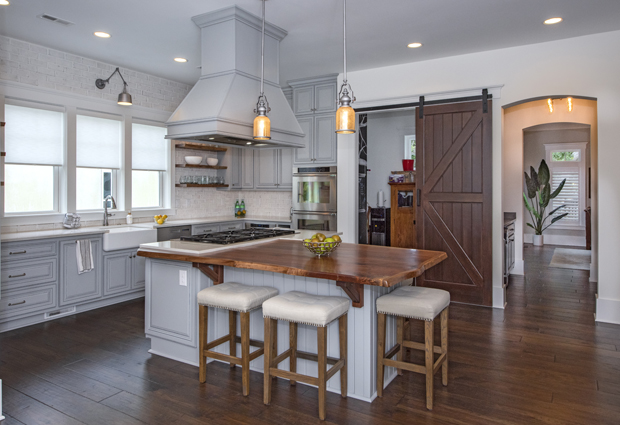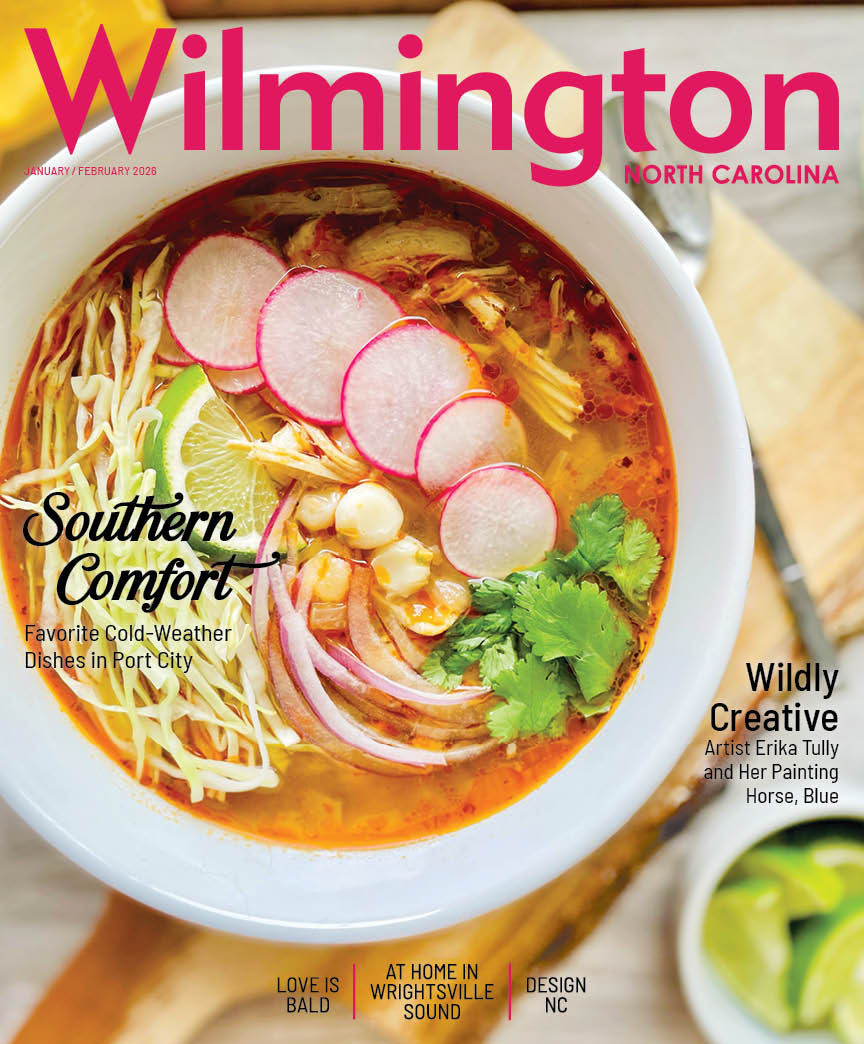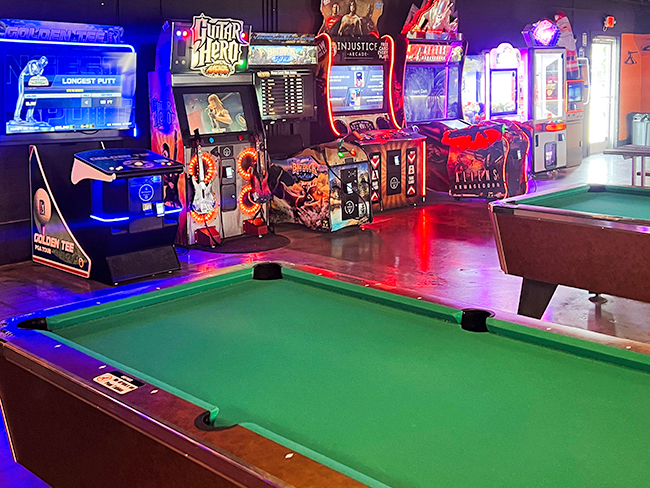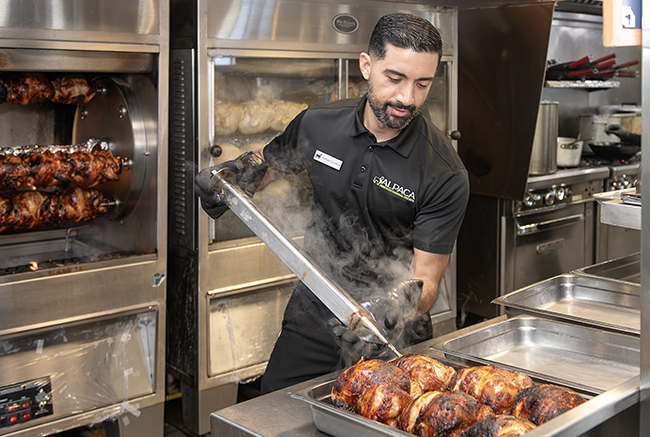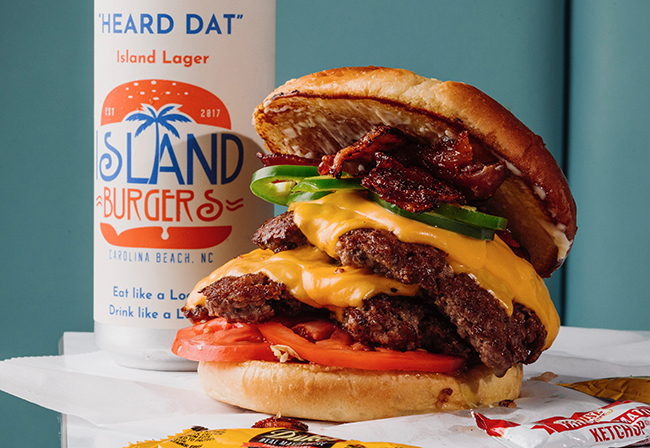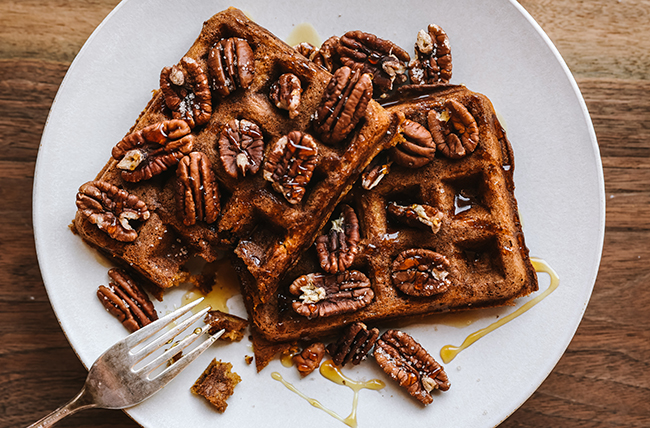Brasserie du Soleil
03 Jul 2019
Making a mark on French cuisine
1908 Eastwood Rd #118
Wilmington, NC
910-256-2226
brasseriedusoleil.com
By BRIDGET CALLAHAN Photos by ERIN WHITTLE
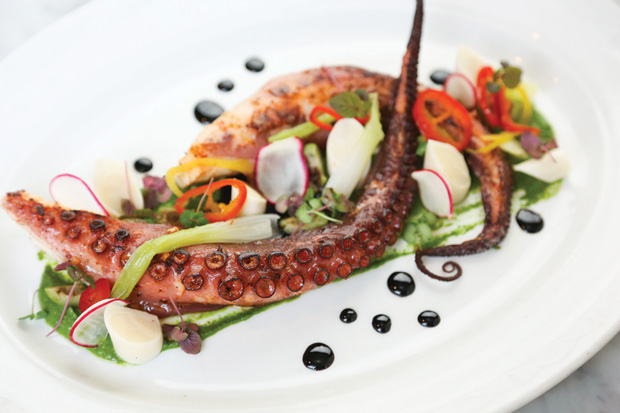
The beauty of French cuisine, and why it remains one of the popular styles in the world is in the perfect combination of classic recipes with advanced techniques. The basics of French cooking remain the same, simple and fresh. But, as the style has evolved, those qualities have been worked on by some of the most technically skilled chefs to be elevated to new heights. Nouvelle cuisine. Haute cuisine. There are a thousand ways to cook in a French style and still put your individual mark on a dish. Towing the line between the classic, sacred recipes, and the creativity of your kitchen is what can make or break a French restaurant.
It’s a trick that Brasserie du Soleil has been pulling off successfully for many years. The little French brasserie in Lumina Station offers a bright, casual lunch spot where you can get the perfect salad, a quiche du jour, or a shrimp & crab crepe draped in rich bechamel sauce. However, at night, it becomes a more serious dining experience, as in-the-know regulars come for the popular raw bar or a beautiful plate of rich Boeuf Borguignon.
The brasserie is one of those Wilmington staples that might spark an uprising among the Wrightsville crowd if it were to suddenly changed. That was a fear many of its fans had when the popular spot was bought by the Urban Food Group, and the husband and wife team of Kevin and Stacey Jennings. With restaurants in Raleigh, Charlotte, and Denver, the Jennings had not been considering a Wilmington expansion until Brasserie went up for sale, along with Osteria Cicchetti in the Forum near Landfall, and Boca Bay on Eastwood Road. When the sale was announced, many were worried that would mean drastic menu and staff changes at Brasserie. But according to Executive Chef Marc Piscitello, the new owners are big believers in “if it isn’t broken, don’t fix it.”
“People have thought we’ve changed a lot of things, and we really haven’t,” Piscitello says. “Like any restaurant, we have to evolve. But, we’re not planning on overhauling it or making it something it hasn’t been for fifteen years. They’re not changing the menu. The only things we’re changing are things that needed to be changed: updating some things that have been overlooked that anyone would need to take care of. You know, like any restaurant would.”
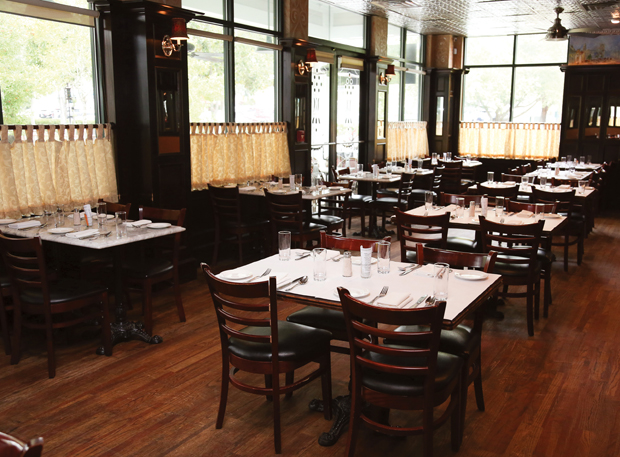
Piscitello is himself a perfect mix of old and new. Growing up in Chapel Hill at his family’s restaurant, he cut his teeth in kitchens. Around 2002, after moving to Wilmington, he started learning under then-executive chef Craig LaBreche at the Surf Club.
“Craig taught me all the basics of French cooking and seafood, and pretty much how to work at a kitchen,” Piscitello says. He then spent the next few years working with Sean Brock in Charleston at McCready’s, at Surf Club on and off, at Brasserie, where he met Kyle McKnight who he would also work quite a bit with at different restaurants around town. But, wherever he went, he somehow always made his way back to the Brasserie kitchen. Piscitellow was most recently the executive chef for several years at Circa 1922, before making this final move back to Brasserie as executive chef, and it seems appropriate that he’s circled back to one of the places that originally molded his style.
His own plans for the menu have involved some tweaking and updating of dishes, but overall he’s sticking with what works.
“The biggest change we’ve had are scallops. They are going to be interchangeable seasonally, and the salmon dish which will change seasonally,” he says. “I’m working on some of it still. There are a couple changes to our pot du jours. We will be doing a halibut that will be a pot du jour, but it will be a light summer dish. Something you want to eat when it’s 120 degrees outside. We’re try to keep it French, everything should have some french influence to it. But I’m personally trying to lighten things up a bit. A lot of French brasseries can tend to have the heavy, extremely classic dishes, and we’re keeping those classics. We are trying to lighten it up and bring the dishes into 2019.”
Of course, many of the dishes, like the famous sauteed flounder in brown butter with haricots verts, boulangére potatos, capers, and lemon are untouchable. If they were to take the octopus appetizer, served with hearts of palm, castelvetrano olives, chili, lime, and Herb Pistou, off the menu, there would be many angry phone calls. And the oysters are certainly not going anywhere.
“We sell tons of oysters. We always have a huge variety, from South Carolina to Prince Edward Island, and then we’ll bring in a few West Coast oysters as well for variety, so everyone knows what’s going on around the states. We always have at least 2-3 varieties of local oysters,” Piscitello says.
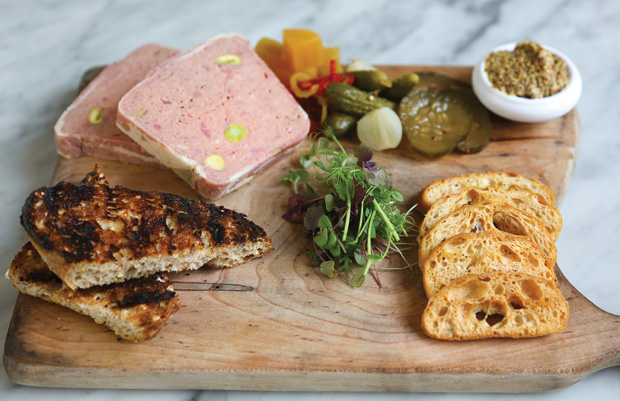
Many of the changes are small. For example, Piscitello has been working on the recipe for the popular country pate for many years. The smooth, rich pate is served with hearty nine grain bread and housemade pickles.
“We use a heritage pork and local chicken livers from Joyce Farms in Winston Salem. It’s very traditional. It’s pretty straightforward. But, I have tweaked it many times. It’s a recipe I learned a long time ago, and I’ve slowly worked it out to my liking,” he says.
So fans of the Brasserie can rest easy. It is not in the nature of true French cuisine to remain static, but changes are made thoughtfully, with years of experience and technique going into every decision. And Piscitello intends to keep that tradition alive.


